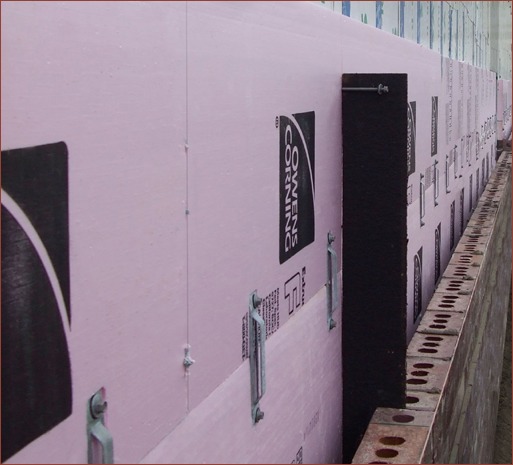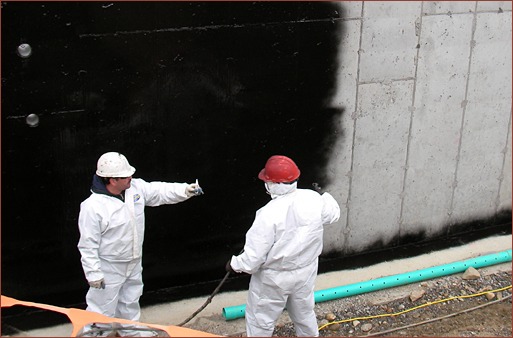The Skinny on Insulation
Words: Dan Kamys
Insulation

By Gregg Hodgson
Mason contractors have a lot on their plates. You have to consider everything from A to Z as it affects your projects. So, what about insulation? Think it’s not really your concern? Think again. Masonry spoke with an expert in the area of insulation to garner the information you need to know. Richard S. Shupe is president of Oxford, Conn.-based Connecticut Insulation Distributors Corp. (cidconline.net) He has been in the construction business since 1970, having been with CIDC for 15 years. Following is what he had to say.
Masonry: Why should a mason contractor care about insulation?
Richard Shupe: Insulation is an important component of the building’s envelope. If the mason is a conscientious craftsman, he feels some ownership of the entire wall system, not just his portion of it. Insulation is a part of the building’s system of air barriers, moisture barriers, fire-resistive barriers, sound barriers, and water-resistive barriers. These barriers are designed to protect the interior from unwanted external conditions.
Masonry: In non-technical words, why are those barriers needed?
Shupe: An air barrier prevents the passage of air through [the wall]. Warm air has a tendency to move toward cool air, so you want a barrier that will keep warm interior air from escaping in cold weather, and conditioned air from becoming warmed by outside air in hot weather. Insulation materials contain tiny air spaces within them that thwart warm air from moving toward cooler air, in either direction.
A vapor barrier keeps water vapor from going where you don’t want it. Vapor tends to move toward dryer air. In winter, when outdoor temperatures and humidity are low, vapor tries to drive itself through the interior walls to the outdoors, and the reverse occurs in the high humidity of summer. Neither is desirable, and when the vapors condense on cooler surfaces, it can cause moisture damage. In masonry wall systems, rigid insulation often can serve as a vapor barrier, although important exceptions exist involving climate and the building’s pressurization. Many vapor barriers are peel-and-stick membranes, but I find some of the liquid membranes are extremely user-friendly.
Water-resistive barriers prevent bulk water from entering the interior spaces. As all masons know, water can occur in any wall system, even brick or block. A water-resistive barrier intercepts that water and lets it exit the wall, usually through weep holes.
I think fire-resistive barriers and sound barriers are self-explanatory. In exterior wall systems, both can be materials that are also being used for other purposes. For instance, all insulating materials will help to suppress noise, and mineral-wool insulation can help to suppress fire for various periods.

Masonry: Are weather wraps, like Tyvek and others, considered part of a building’s insulation?
Shupe: Not really. A weather wrap can serve as an extra air barrier to supplement the insulation, but it has no R-value itself. Its most important job, as a rule, is to block air and deflect bulk water, while letting vapor pass through. If it’s to be installed in masonry wall systems, its high vapor-permeability means it must be in proper conjunction with other low-permeability barriers. Otherwise, water vapors can pass into the wall cavity and cause problems. Like all products, weather wraps must be installed in strict accordance with building codes and the manufacturer’s instructions.
Masonry: How do liquid barriers work?
Shupe: They’re called “fluid-applied air barriers.” The best of them have low or no VOCs and HAPs, may also serve as vapor barriers, are effective with relatively thin coverage, and can withstand UV exposure for months before being enclosed. They can be spray applied or brush/roller applied directly to any gypsum board, plywood or concrete masonry substrate. They don’t need priming, and can be applied by a single worker. Since they’re liquids, they cover and seal protrusions neatly.
Masonry: Any last words?
Shupe: Yes. I’m no tree-hugger, but my family and I breathe the same air and drink the same water as everyone else. So I hope specifiers study the MSDS for every product they specify. There’s no reason to use products containing hazardous materials if there are alternatives. Defenders may argue, “There’s just a little bad stuff in it.” But, when it’s being used in countless buildings, my reply is, “A lot of a little makes a lot!”
Return to Table of Content